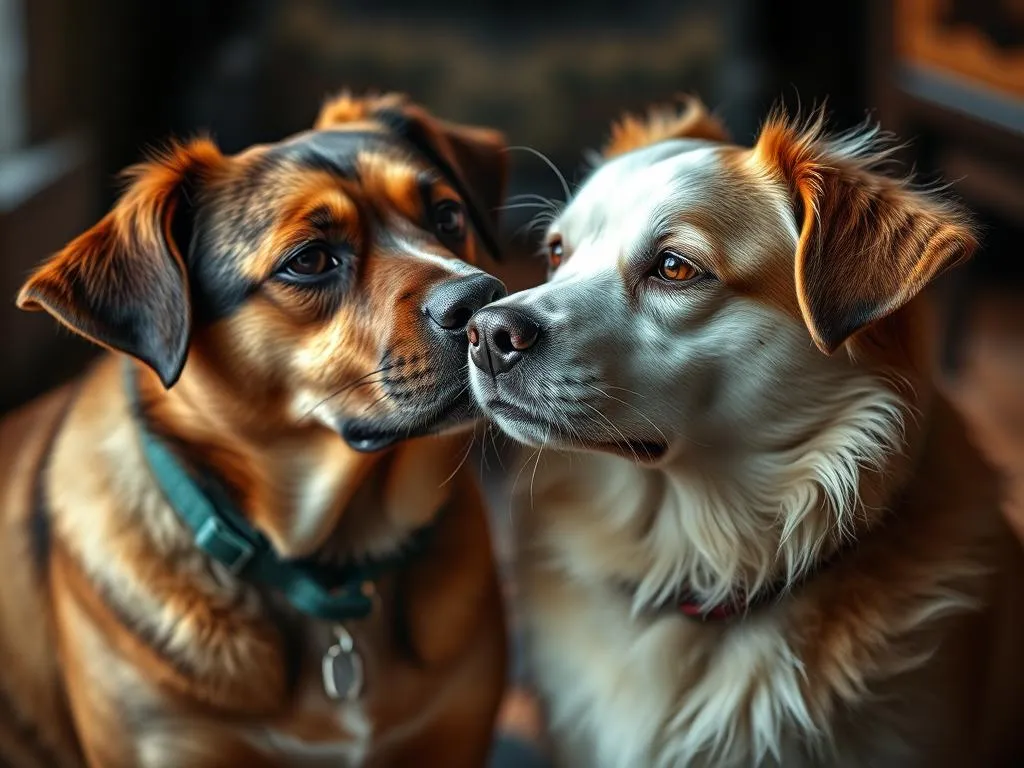
Introduction
Dogs experience the world primarily through their sense of smell. In fact, their olfactory capabilities are vastly superior to those of humans, allowing them to detect scents at incredibly low concentrations. Smells dogs love play an essential role in their daily lives, influencing everything from their behavior to their emotional states. This article aims to explore various scents that dogs adore and how you can incorporate these delightful fragrances into their lifestyle, enhancing their happiness and well-being.
The Science of Smell in Dogs
How Dogs Perceive Smells
Dogs have an extraordinary olfactory system, which is composed of approximately 300 million olfactory receptors, compared to a mere 5-6 million in humans. This gives dogs the ability to detect scents in a far more nuanced way. When a dog sniffs, they use a specialized organ known as the Jacobsen’s organ, which helps them identify pheromones and other scent signals.
The structure of a dog’s nasal cavity also allows for a more efficient processing of smells. Air enters through the nostrils and is channeled into a series of turbinates, where it can be analyzed before reaching the lungs. This evolutionary advantage makes dogs exceptional at tracking scents, detecting changes in their environment, and even identifying emotional states in other animals.
The Role of Smell in a Dog’s Life
For dogs, smell is not just about detecting food or finding their way home; it plays a crucial role in their communication and social interactions. Dogs rely on scent to gather information about their environment, such as identifying other dogs in the area or assessing the presence of potential dangers. Moreover, smell has a profound connection to a dog’s emotional state. Scents can evoke memories and feelings, making the world a rich tapestry of aromatic experiences.
Top Smells Dogs Love
Natural Scents
Other Dogs’ Scents
One of the most potent smells dogs love is that of other dogs. Dogs communicate using pheromones, which are chemical signals that can convey a wealth of information about another dog’s identity, reproductive status, and even their mood. A simple walk in the park becomes a sensory adventure filled with the scents of countless dogs, offering a chance for social interaction and exploration.
Nature Scents
Dogs also find immense joy in natural scents, such as grass, dirt, and leaves. When they roll in the grass or dig in the dirt, they are not just playing; they are immersing themselves in the earthy smells that are naturally stimulating. These scents can make walks and outdoor adventures more enriching for dogs, allowing them to connect with their environment.
Food Scents
Food is another significant factor when it comes to smells dogs love. Dogs are particularly attracted to the aromas of meat, cheese, and other savory treats. The scent of cooked chicken or beef can send a dog into a frenzy, and many dog owners use food scents to train or reward their pets.
Human-Related Scents
Human Sweat
Interestingly, dogs are also attracted to their owners’ scents, particularly their sweat. This attraction stems from the bond between dogs and their humans. The unique mix of pheromones in human sweat can provide comfort and familiarity to a dog, making them feel secure and loved.
Scented Products
Many dogs enjoy the scents of scented products, such as soaps, lotions, and shampoos. While some fragrances can be overwhelming or even harmful to dogs, there are several natural options that can be appealing. For instance, lavender is often soothing for both dogs and humans alike, making it a popular choice for dog-friendly products.
Unique and Uncommon Scents
Essential Oils
Certain essential oils can be delightful for dogs, with smells dogs love including lavender and chamomile. These oils not only smell great but can also have calming effects. However, it is crucial to ensure that any essential oils used are safe for dogs, as some can be toxic.
Other Animals’ Scents
Dogs are often intrigued by the scents of other animals, such as cats or rabbits. These scents can stimulate a dog’s curiosity and encourage them to explore. However, it’s essential to monitor your dog’s reactions to these scents, as they can also provoke excitement or anxiety.
How to Use Smells to Enhance Your Dog’s Life
Creating a Scented Environment
Incorporating smells dogs love into your home can create a comforting and stimulating environment for your furry friend. Here are some tips:
- Scented Toys: Consider investing in toys that are infused with appealing scents, such as bacon or peanut butter. These toys can engage your dog’s senses and keep them entertained for hours.
- Natural Scents in the Home: Use natural scents from plants and essential oils to create a calming atmosphere. Just be sure to choose dog-safe options and consult with your veterinarian if you are unsure.
Scent-Based Training Techniques
Using smells as part of your training routine can be incredibly effective. Here are some ideas:
- Using Food as Rewards: Incorporate the scents of your dog’s favorite treats during training sessions. The aroma will keep them motivated and engaged.
- Scent Games: Engage your dog’s mind by hiding treats around the house or yard and encouraging them to find them. This not only stimulates their sense of smell but also provides mental exercise.
Outdoor Activities Focused on Smell
Taking your dog on adventures that engage their sense of smell can be incredibly fulfilling. Consider these activities:
- Nature Walks: Explore trails or parks where your dog can sniff out various scents from plants, other animals, and the environment.
- Scent Trails: Create a scent trail using treats or toys, encouraging your dog to follow the trail to the reward. This is a great way to combine exercise with mental stimulation.
Safety Considerations
Toxic Smells to Avoid
While there are many smells dogs love, there are also several scents that can be harmful. Be cautious of:
- Certain Essential Oils: While some essential oils are safe, others, such as tea tree, eucalyptus, and citrus oils, can be toxic to dogs. Always do your research before introducing new scents.
- Household Cleaners: Many common household cleaners emit strong chemical odors that can be harmful to pets. Opt for pet-safe cleaning products whenever possible.
Allergies and Sensitivities
Just like humans, dogs can experience allergies or sensitivities to certain scents. Signs may include sneezing, excessive scratching, or skin irritations. Keep an eye on your dog’s behavior and consult your veterinarian if you notice any adverse reactions.
Conclusion
Understanding the smells dogs love can significantly enhance your dog’s quality of life. By exploring various scents and incorporating them into your dog’s daily experiences, you can strengthen your bond and provide mental stimulation. Remember to observe your dog’s individual preferences and adapt accordingly. Through scents, you can communicate love and comfort, enriching your dog’s world and deepening the connection you share.
Incorporating the scents that your dog adores not only brings joy to their life but also creates a happier, healthier environment. As you explore the aromatic world around you and your canine companion, you will discover the powerful connection that scents create between dogs and their human companions.









